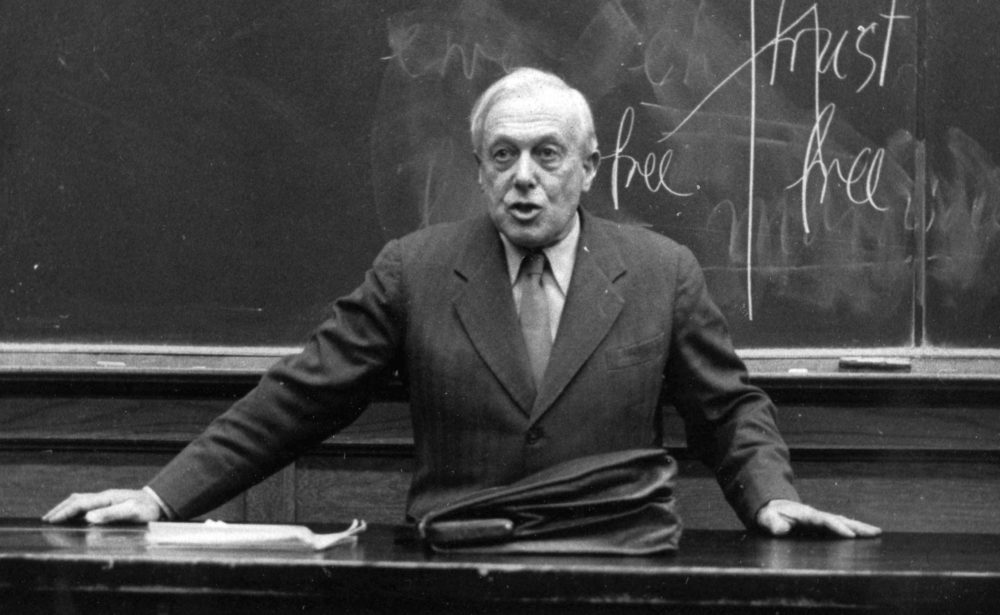Volume 32: Universal History (1967)
Twenty 1-hour lectures.
A universal history, when it is taught, can have only this one purpose, to implant in you the power to overcome your private times, your private rhythms, and to share that rhythm which makes you brothers with the people 7,000 years back.
History should make you indifferent to your contemporaries, and should make you very intimate with the people of all other times. If it doesn’t do this, history hasn’t done its purpose. The brotherhood of man through time is equally important as the brotherhood of the ladies and men today in the barbershop, or on the street… Real time is only a time which is able to surround, to embrace, to contain, to condense all the times…
From Easter to All Saints, a thousand years were spent with inculcating into the tribes, the empires, the cities of the Greeks, and the Jewish priesthood the verity that the same man had to be a prophet, and an ancestor, and a poet, and a priest. And that these four great creations of antiquity could not lie separate…
—March 16, 1967

In this lecture series, Rosenstock-Huessy explores speech and naming, the central nature of Christianity in history, and ethics; he explains his take on creativity, the development of human culture, the danger of becoming enslaved by certain types of thinking, and the development of a human soul.
There are several lecture series with this title.
All of them expand on the premise of Out of Revolution in that they seek to express the unity of history. But here it is not the 1000 years of European history for which unity is sought, but the entire life of humankind “from Adam to the last judgment.” Our own story is told through the lives of our revolutionary ancestors. The tribes, the astrological empires, the Jews, and the Greeks are honored not only for their enduring and continuing contributions but for having once and for all broken new ground.
Rosenstock-Huessy declares that the Christian era exists, and he defends it. He calls Christ the turning point of history: the culmination of the yearnings and the redemption of the achievements of the ancient world, the cornerstone of our hopes for the unity of mankind. The four ages of the ancient world are succeeded by the millennia of the Christian era in which one God over many gods was, one world out of many worlds have been, and one society out of the many societies, is yet to be, created. The history of mankind is retold as a kind of relay race in which each age or generation charts new territory.
Much of the material in these courses is available in German, in far greater detail, in the second volume of Soziologie.
